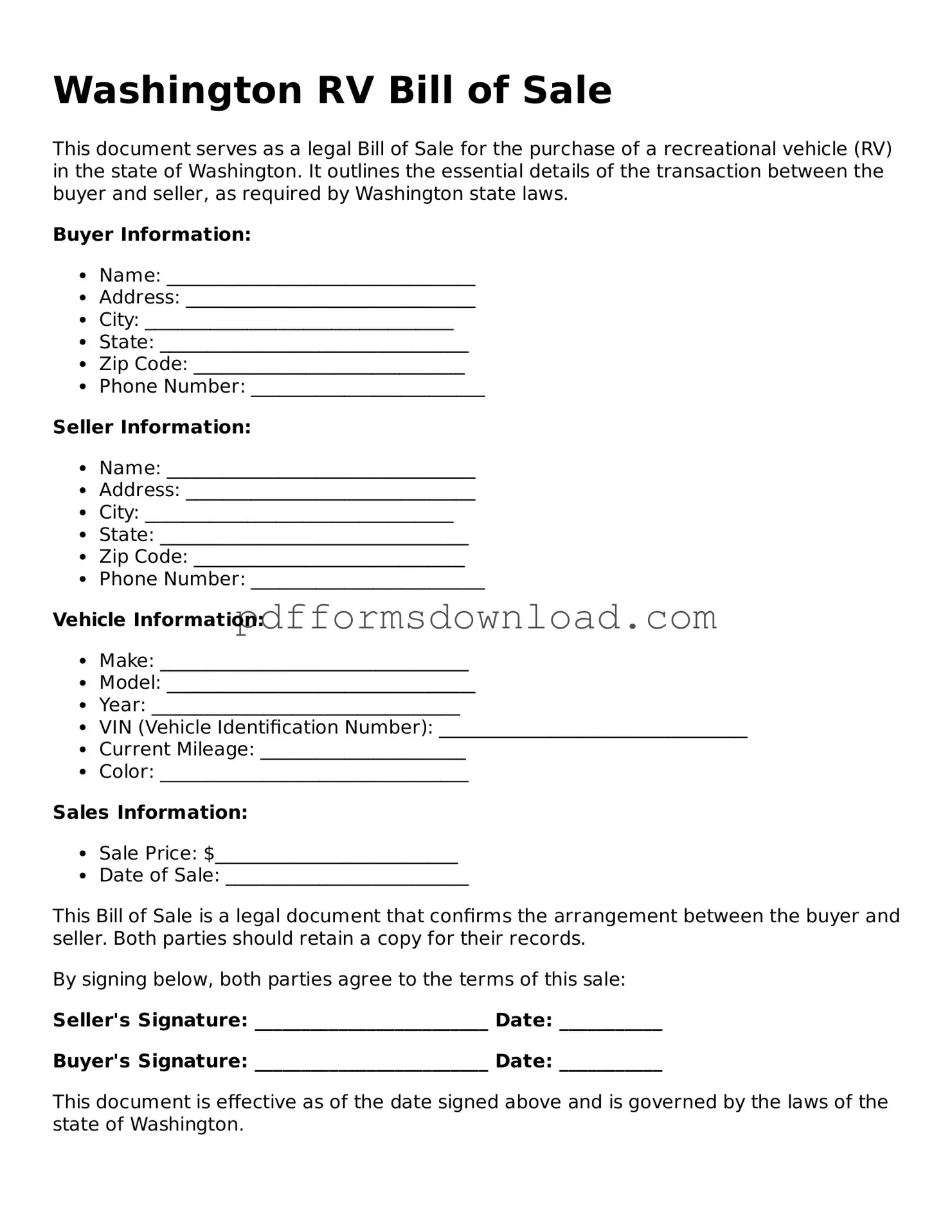Printable Washington RV Bill of Sale Form
The Washington RV Bill of Sale is a legal document that serves as proof of the sale and transfer of ownership of a recreational vehicle in the state of Washington. This form outlines essential details such as the buyer and seller's information, vehicle description, and sale price, ensuring a smooth transaction. To facilitate your RV sale, be sure to fill out the form by clicking the button below.
Make This Document Now

Printable Washington RV Bill of Sale Form
Make This Document Now

Make This Document Now
or
Free PDF File
Your form is almost ready
Complete your RV Bill of Sale online — edit, save, and download easily.